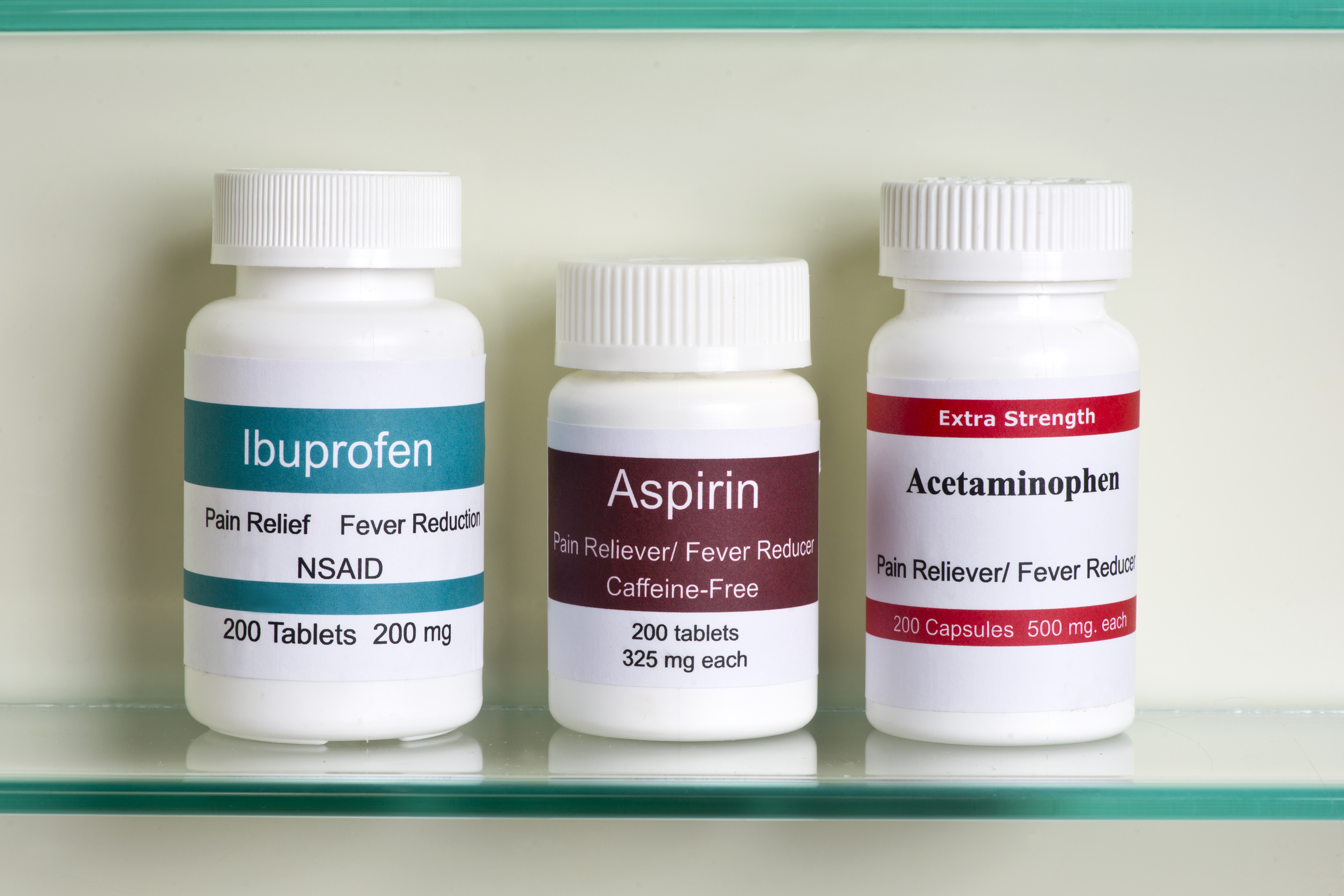Whether your goat is in extreme pain or experiencing some discomfort in their joints, then you may be considering giving them some ibuprofen to help alleviate that pain. The only thing is goats aren’t humans, so can you give them ibuprofen?
It is possible to give an adult goat an adult dose of aspirin if they are experiencing pain. Once they have a dose, then take them immediately to the vet, as there may be an underlying cause that is causing serious problems for your goat.
Ibuprofen isn’t specifically designed for goats, so there are a lot more things to explore and understand. A veterinarian is important to understanding the medical needs of a goat more in depthly, so consult them for more information regarding health and wellness. Nonetheless, here is an article regarding ibuprofen and how it can help in case of immediate attention!
What Would You Give a Goat Ibuprofen For
Ibuprofen is mainly used for minor aches and pains for humans, which is likewise the use for goats. Ibuprofen can be used when they are experiencing abdominal pain or having something minor that is irritating them. It should never be used in place of serious medication or instead of a veterinarian’s opinion. It should probably be used when trying to keep your goat calm while on your way to the vet. Of course, ibuprofen does have caffeine in it, which should never be given to goats in most cases.
Some of the most normal things to give your goat ibuprofen for is abdominal pain, diarrhea, joint discomfort, and minor things along those lines. If it looks like your goat needs more than one or two doses, then it’s most likely not something minor and they will need to be taken to the vet immediately. Goats don’t often get sick, but they also can’t tell you if there is something seriously wrong, so it’s usually best to go to the vet in order to make sure that everything is perfectly fine and their body is working the way it should.
Generic or Name Brand

Often times, there isn’t necessarily a big difference between generic or name brand over the counter medications. The one noticeable difference is that most off brand medications, or generic, won’t contain certain additives, such as caffeine. The thing about caffeine is that often times it helps in alleviating pain more quickly. The thing about caffeine for goats is that caffeine has more negative side effects than positive, and can disrupt the digestive tract and flora within the goat. It may be better to purchase a generic brand of ibuprofen than name brand because of the lack of certain ingredients that can be more damaging to the goat. The ibuprofen is a temporary fix to whatever is ailing your goat, so make sure to the vet immediately for more medical help.
Alternatives for Ibuprofen
Thankfully, there are a lot of alternatives out on the market in case ibuprofen doesn’t cut it for you, or you don’t have it on hand. As an adult human, it’s totally fine to take a dose of ibuprofen, and then three hours later you can take a dose of Advil. This rule doesn’t apply for goats, so don’t try doing this. But, giving a fully grown adult goat an adult sized dose of Advil as an alternative to ibuprofen is completely fine. There’s Advil, acetaminophen, Tylenol, Aleve, and so many more.
Don’t use any of these in the state of a real medical emergency. Slow-acting pain relievers shouldn’t be used in comparison to actual medical attention, as there may be more underlying causes that your goat is experiencing that can be detrimental to their overall and long-term health. They are also blood thinners, which can be detrimental if they need to get surgery because of what is bothering them.
Don’t Use it if Your Goat is Pregnant
Just as in a pregnant female human, it is important to not take medication that could be harmful to the health of the fetus. The same goes for female goats that are pregnant. Do NOT consider giving your pregnant goat ibuprofen for any sort of pain or discomfort. The thing about ibuprofen, or all pain relievers under this same category, are blood thinners. It doesn’t necessarily thin your blood, but it slows down the time it takes for your blood to clot.
This is extremely detrimental to the well-being of the female goat, and can affect the growth and development of the fetus(s). If your female goat is looking uncomfortable, it is most likely time for her to kid. Yes, giving birth to baby goats is called kidding. So, if you give a pregnant goat ibuprofen, they will most likely bleed out and die. So, it’s best to avoid those kinds of pain relievers. If it is bad enough, take them to the vet for a diagnosis or proper medication.
How to Recognize Your Goat is in Pain
More serious signs of obvious pain is that your goat will cry out and be making a lot of noise, they are not moving and laying on their side, or aren’t eating or drinking at all. A bleating goat means they’re most likely hungry, but you will notice a change in mood and obvious discomfort when they won’t eat and are not energetic. Ibuprofen, or Aleve or whatever you use, is only a temporary fix to a problem that is plaguing your furry friend. It can be used while you are on your way to the vet.
There are some obvious signs that your goat is experiencing discomfort or pain. Some less serious signs include your goat lying down, limping, or looking tired. These aren’t as serious, and could mean they are experiencing some discomfort going to the bathroom, having some stomach pains, or something minor. A dose of ibuprofen would be totally fine, and would alleviate some pain while you call the vet and make sure it isn’t anything more serious. Your goat can’t talk, so you need to make sure a professional looks at them to ensure their health is intact.
Best Antibiotics for Goats

It is easy to notice when your goat is sick. The most notable thing that can be seen is that your goat won’t be energetic and will have some difficulty eating. It’s extremely noticeable, and means that your goat should be checked on by a vet who can administer the proper medications. Here are some of the most used antibiotics when treating your goat.
Penicillin
Penicillin is like the band aid of all medications for goats and sheep alike. It is certainly the most widely used antibiotic to treat goats. Penicillin is used for a variety of ailments that occur among goats, but one of the most popular is bacterial pneumonia. It’s common for goats to get sick during extremely cold weather. Goats are fairly hardy animals, and don’t normally experience harsh ailments during any weather. More than likely your goat may get diarrhea from having a change in diet or eating something that upsets them.
It is also possible to purchase penicillin in case it needs to be administered regularly in order to keep whatever is making your goat sick at bay. The average dose for an adult goat is roughly 1 mL per 100 lbs. body weight. In most cases, it should not take more than three to four days for symptoms to clear and your goat to return to normal. If the goat doesn’t get better, then return to the vet in order for underlying diseases and symptoms to be diagnosed.
Ceftiofur
This antibiotic is also commonly used for goats who are experiencing pneumonia. It’s not just used for goats, but can also be used for cattle, even calves, as well as horses and pigs. Of course, these animals have other diseases besides pneumonia, so it works for them for other reasons besides that. These can’t just be purchased anywhere, and most likely need to be administered by a vet. It’s entirely dependent on what the pneumonia is like and whether it needs to be administered often, in which the vet will give you what you need.
Anthelmintics
Anthelmintics are commonly used to treat parasitic worms. It could either be flat worms, flukes, tapeworms, as well as round worms. Goats can get these just by eating something off of the ground where they graze. It’s not extremely common that a goat will get sick with worms, but it does happen often enough that it needs to be treated. This medicine helps to kill off the worms without harming the goat at all. Most often these medicines are called ivermectin and albendazole, which are used specifically on goats.
This isn’t necessarily anything that you can just purchase on your own. It should be administered by a vet, and is more of a vaccine. It doesn’t normally have to be prolonged over several days, but it also depends on your goat and what type of worm it is and how invasive it has become.
